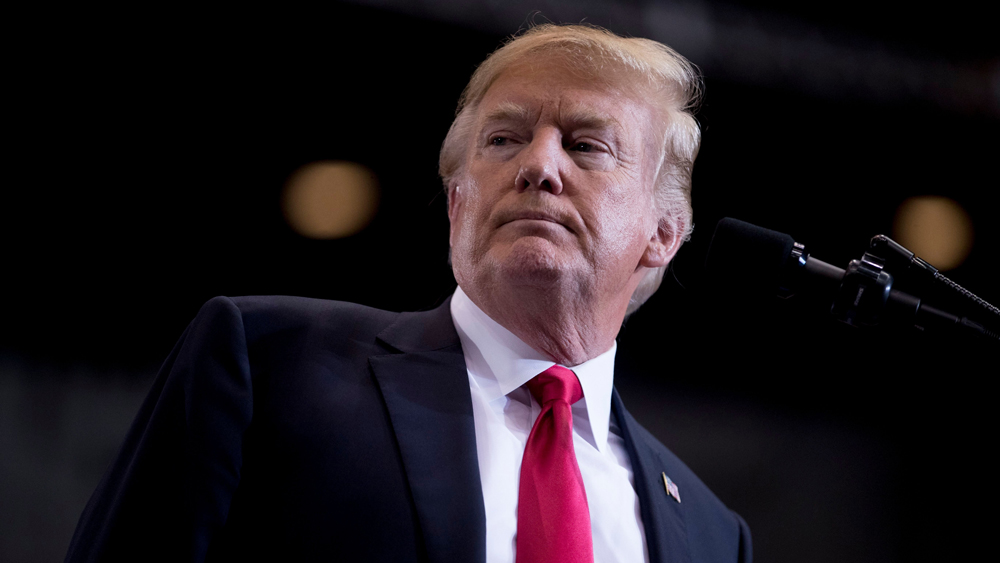Supreme Court Upholds Trump’s Travel Ban
By Ted Johnson
LOS ANGELES (Variety.com) – WASHINGTON — The Supreme Court upheld President Donald Trump’s travel ban on Tuesday , ruling 5-4 that the administration’s restrictions on foreign nationals entering the U.S. fell within the scope of presidential authority.
The ban — which included Chad, Iran, Libya, North Korea, Somalia, Syria and Venezuela and Yemen — was challenged by the state of Hawaii. The plaintiffs also included three individuals with relatives from Iran, Syria, and Yemen, and the Muslim Association of Hawaii.
The 5-4 decision is a key victory for Trump, who issued a travel ban after just a week in office. It was later modified after it was challenged in court, but it continued to face challenges from the states. One of their main arguments was that the ban singled out Muslims, and they cited Trump’s own rhetoric on the campaign trail and in the White House.
Trump tweeted soon after the ruling.
In the majority opinion, Chief Justice John Roberts wrote that the travel ban “is expressly premised on legitimate purposes: preventing entry of nationals who cannot be adequately vetted and inducing other nations to improve their practices.
“The text says nothing about religion. Plaintiffs and the dissent nonetheless emphasize that five of the seven nations currently included in the Proclama- tion have Muslim-majority populations. Yet that fact alone does not support an inference of religious hostility, given that the policy covers just 8% of the world’s Muslim population and is limited to countries that were previously designated by Congress or prior administrations as posing national security risks.”
He wrote that the text of the order “comfortably encompasses a group of people linked by nationality.”
The majority also rejected the comparisons that the state of Hawaii made to a 1944 case that upheld President Franklin Roosevelt’s relocation of Japanese-Americans to internment camps.
“The forcible relocation of U. S. citizens to concentration camps, solely and explicitly on the basis of race, is objectively unlawful and outside the scope of presidential authority,” Roberts wrote. “But it is wholly inapt to liken that morally repugnant order to a facially neutral policy denying certain foreign nationals the privilege of admission.”
Roberts also made clear that the 1944 Supreme Court ruling “was gravely wrong the day it was decided, has been overruled in the court of history, and—to be clear— ‘has no place in law under the Constitution.’”
Justices Stephen Breyer and Sonia Sotomayor each wrote their own dissents, and they were joined by Elena Kagan and Ruth Bader Ginsburg.
Breyer wrote that the travel ban’s inclusion of exemptions and waivers —for those seeking asylum, refugees, students and lawful residents — strengthened the Trump administration’s argument that the order was legal. But he pointed to data and anecdotal evidence that the waivers have not been applied, even pointing out that “while more than 15,000 Syrian refugees arrived in the United States in 2016, only 13 have arrived since January 2018.” He said that the travel ban should be set aside until a district court has a chance to fully adjudicate the case.
Sotomayor wrote that “based on the evidence in the record, a reasonable observer would conclude that the [travel ban] was motivated by anti-Muslim animus. That alone suffices to show that plaintiffs are likely to succeed on the merits of their Establishment Clause claim.
She cited Trump’s campaign statement on Dec. 7, 2015 calling for “a total and complete shutdown of Muslims entering the United States,” and ran through a litany of other remarks he made since then.
She added, “The majority holds otherwise by ignoring the facts, misconstruing our legal precedent, and turning a blind eye to the pain and suffering the [travel ban] inflicts upon countless families and individuals, many of whom are United States citizens.”
Justice Anthony Kennedy, in his concurring opinion, seemed to warn Trump to adhere to constitutional norms, even though the ruling gave the president broad leeway in matters of national security.
“There are numerous instances in which the statements and actions of Government officials are not subject to judicial scrutiny or intervention,” he wrote. “That does not mean those officials are free to disregard the Constitution and the rights it proclaims and protects.”
Chad was removed from the list of countries in April. The plaintiffs did not challenge the restrictions on North Korea and Venezuela.

